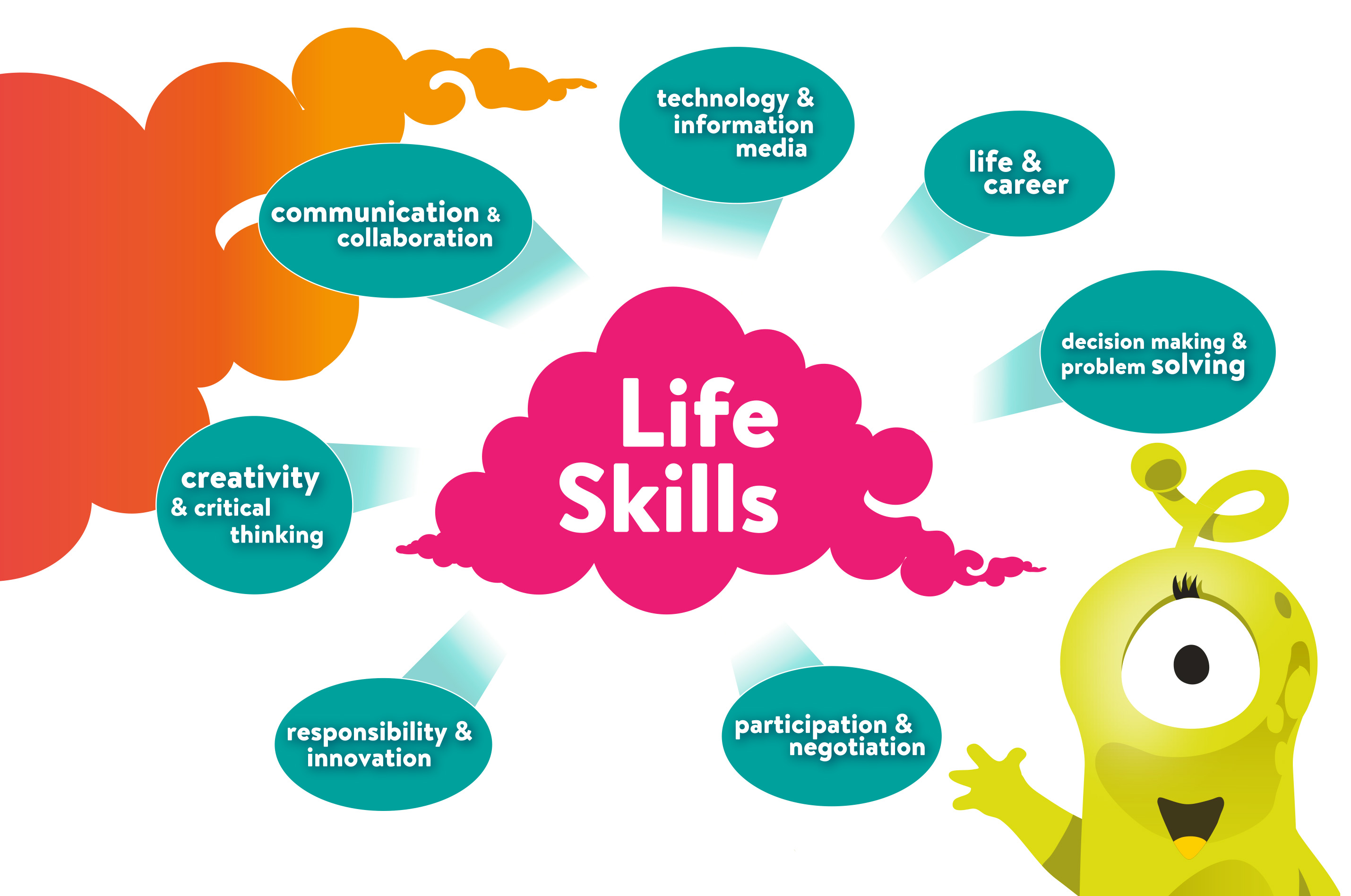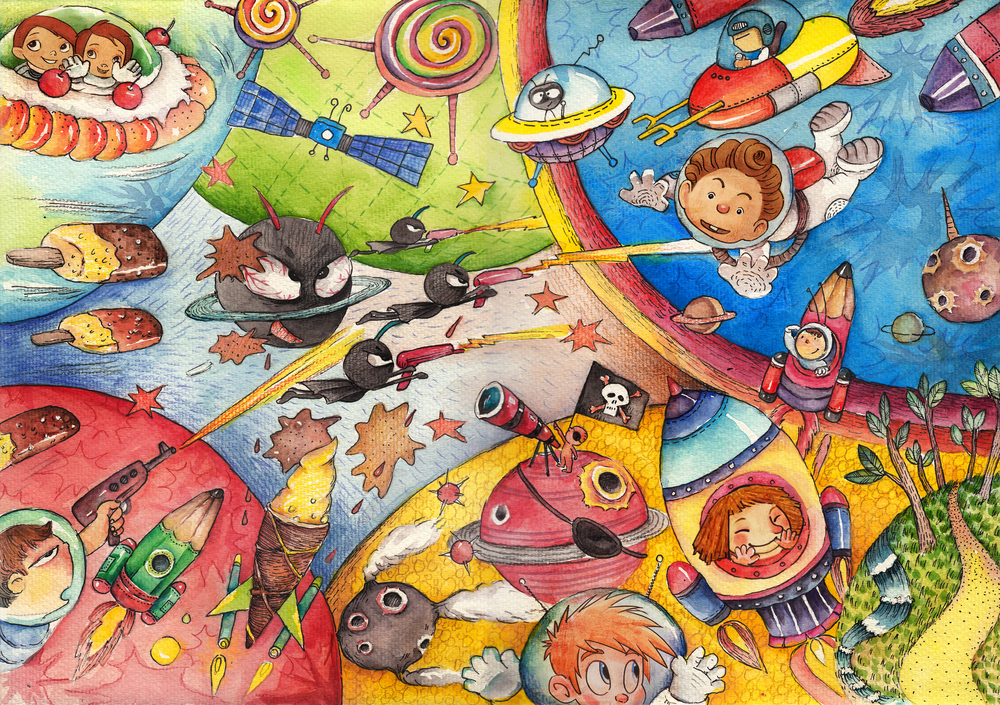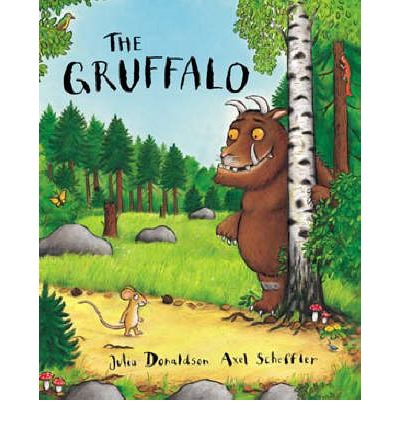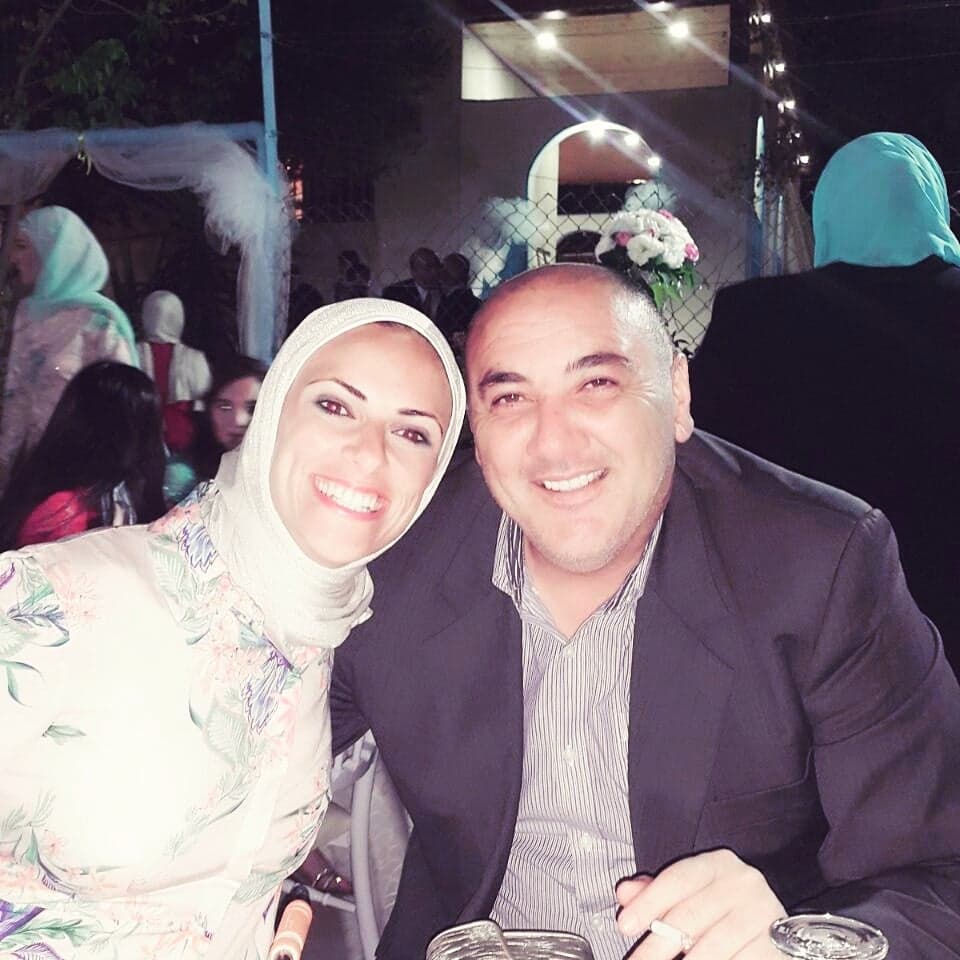Mothers’ Stories
15 Skills to teach your kids before they turn 6: Part 2

By: Helena Al Sayegh
Make sure you read part one to get a full scope of why life skills are important for the whole family — mom, dad and the kids. When building a happy and fulfilling life, there are certain skills we need to master. Some of them might take more work than others, and you’ll find some that might come pretty naturally.
Here are the first five life skills we covered in part one:
-
Decision-making
-
Patience and Delayed Gratification
-
Problem Solving
-
Commitment and Discipline
-
Communication
Remember, not a single life skill is more important than another. Each of them is essential and they all work together. Once you have a grasp on the first five, take a look at these next five life skills.
-
Perseverance
Stress and distraction can get the best of us all. It’s not typical to want to quit whenever we feel overwhelmed or unable to focus on the task at hand. And this is especially true for children. Their attention span is shorter than adults’, and their brains work hard to process any new information about the world around them. When you notice your child is about to reach their breaking point, offer fun and mood-changing activities. Short breaks (five-minute breaks per 20 minutes of concentration), fun games (cards, musical chairs), high energy foods (whole grains, fruits), a glass of water, a quick nap or a burst of physical activity can help break up long periods of work.
Catching your kids before a melt-down and helping them release any pent-up frustration will aid them in persevering through the task at hand. Also, take note of the environment surrounding your child as he or she tries to focus and concentrate. An appropriate environment — which includes organization, quiet and it's not-too-far from mom in case they have questions — helps kids feel relaxed secure. Your child will be more likely to push through and stay in control of their emotions if they feel that they have your support and attention.
Example: "Before you start this project, why don’t you talk me through your plan? How can I help you structure this task?"
Example: "I notice you’re getting aggravated with your work. What if you try singing along to some fun music to release some of that frustration?"
Example: "Hey little miss, you seem pretty distracted. Let’s go for a walk to change the scenery and refocus."
Example: "Hey buddy, you’re almost finished, you can hang in there a little longer. You’re going to be pretty proud of yourself when you’re done, so let’s not quit now. Is there anything I could do right now to help you push through and finish?"
-
Compassion
Compassion — or empathy — is a quality that paves the way to understanding and forgivingness. It’s not just feeling sorry for someone else, which can sometimes lead to a superiority complex. Compassion is standing in the shoes of another person and considering the emotions and feelings of that person. It's realizing that other people have genuine and legitimate perspectives, and they also deserve respect and care. Having compassion for others is the opposite of being self-centred and thinking only about what would make you happy. Let’s teach our kids to be truly empathetic towards others. Thoughtful, compassionate gestures from mothers make kids more considerate and kind towards others.
The role-playing element is key when it comes to teaching compassion; empathy needs to be modelled. Some fun ideas to show compassion to your kids include: hiding an after-school “love note” somewhere in their room, helping your child pick out special gifts for a friend or teacher, spending quality time together and paying attention to the details your child shares, participating in activities your child enjoys, making special crafts and cards for someone who is sick or having a hard time, lots of hugs and kisses “just because,” frequently verbalizing kind statements, giving monetary donations to or volunteering with charitable organizations. There are numerous things you can do to model compassion and empathy. Be creative and add your own ideas to this list.
Example: "What you said about that boy’s clothes was hurtful. It would make you really sad if someone said that to you. Our family values every person as beautiful in their own way. Our clothes don’t make us better than anyone else. Take a few minutes and think about the effect your words can have on others. I’d also like an example of a kind and loving thing you could say instead."
Example: "Let’s try to put ourselves in her shoes. Do you have any ideas about how she might be feeling right now? Do you like feeling that way? Can you give me some ideas on how you could help her feel better right now?"
Example: "I’m going through my closet and giving some nice things away to people in need. Would you like to find some clothes or fun toys to give to a child who doesn’t have much?"
-
Contentment
Content parents raise content children. When we whine and gripe about our problems, friends, work or possessions, our kids will grow up thinking the grass is always greener on the other side — that everyone else has better friends, jobs and things. As parents, we need to help our children find a healthy balance between enjoying what they currently have and aspiring to higher standards. Be a role model of gratitude and thankfulness. Show your kids how enjoyable it is to appreciate what is available at the moment, and to never take blessings for granted.
Example: "Complaining doesn’t look good on you. I’d like you to tell me five things or people you’re thankful for."
Example: "I’m so thankful you’re mine. You’re such a blessing to my life, and I thank God for you. What are you grateful for today?"
Example: "I know you’d like more blocks so you can build a bigger tower. But these are what we have right now. Can you make the best out of it?"
Example: "You’re right; it sounds like your friend is allowed to watch a lot of movies you’re not. I’m sorry that makes you upset. But Dad and I have our reasons. Can I help you come up with alternative ideas that are still really fun?"
-
Understanding
Understanding what motivates other people — what makes them happy, sad, upset or excited— helps us interact and communicate with them better. This is also true for our relationship with our kids, and for teaching kids how to relate to others. Ask your children for help when you don’t comprehend their actions or words. This will better your understanding of how your kids work, and it will also aid your child in knowing how they tend to react to various emotions and feelings. Sometimes we all need help pinpointing why we’re responding a certain way.
Creating an atmosphere of self-awareness and understanding is healthy for your whole family. Understanding does not necessarily mean agreeing with your child’s behaviour! Yes, you understand your child is upset, but that doesn’t mean you’re okay with the resulting tantrum. The purpose of teaching your kids how to understand themselves and others is to help them discover their own, healthy techniques to release pressure, cope with stress and respectfully relate to others.
Example: "Can you help me understand what you're feeling right now? I think you might have some fears about the first day of school, but kicking me is not okay. Is there another way you can express your feelings? Can you talk to me about them?"
Example: "I don’t like the words you’re using to talk about that girl. I know she’s new and from a different country; she might do things differently than you and I do. Do you think you could try to understand her instead of judging her?"
Example: "Hey buddy, I’m not sure what will help you to calm down right now. I know you’re very angry. Is there something I can do? Would you like to write about your anger to process your thoughts? Or we can change the scenery and laugh at a funny video?"
-
Acceptance
Unconditional love is the most powerful love you can show your kids. It says, “I’ll love you forever, no matter what.” One of the ways you show unconditional love is through acceptance. You did something wrong? You made a mistake? You screamed and cried and threw a massive tantrum in the middle of the grocery store? I still love you. I still accept you.
This is what your kids need to hear and see from you. Yes, you correct and discipline but the love is still there; the desire for a relationship remains. There will be plenty of time for approval — expressing pride over something your child did. But acceptance is something we give and show even when our kids fail. This helps our little ones learn how to love and accept themselves, and then extend the same grace to others. If we’re judgmental or make it seem like our love hinges on our children’s performance, our kids can become critical and insecure.
Moms, our words and actions mean a lot. If our kids think we have unrealistic expectations for them and feel they can never measure up, insecurity works its way into their hearts. If you’re constantly critical of yourself (I never do anything right; I’m so dumb; I’m not pretty enough), your kids grow up thinking they are equal to the sum of their successes and failures, meaning they won’t learn how beautiful and special they are, regardless of what they do. It is essential for mamas to repeat positive statements about themselves and their children, and encourage their little ones to do the same.
Example: "You’ve worked so hard at school, and you might feel like your grades don’t reflect all your effort but I see you, and I love you. I’m so glad your mine!"
Example: "I really enjoy spending time with you. I love hearing you share your thoughts and feelings. You are so special to me, and it’s such a joy to watch you grow up. There’s nothing you could ever do to make me stop loving you."
Ponder these life skills and how you can better incorporate them into you and your kids’ lives. Go back and review the skills introduced in part one, and make sure to read part three. As you keep your intent to help your family grow in these different areas, you’ll experience greater communication, more peace and a new sense of happiness.
*This is an edited article from the original one from http://www.helenasayegh.com/














